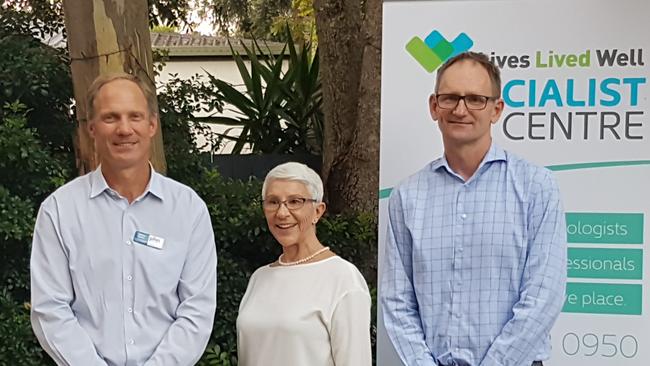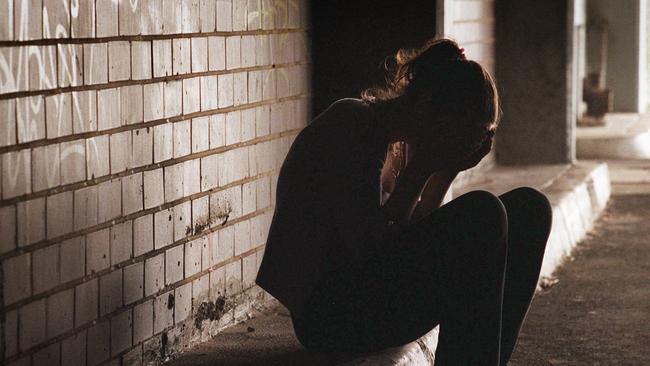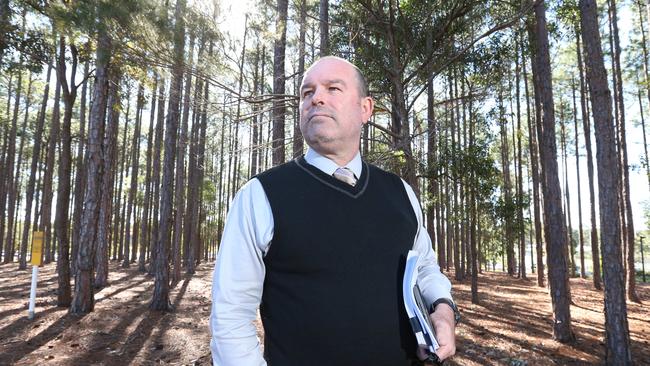Why decriminalisation isn’t a dirty word in the Gold Coast drugs debate
ADDICTION experts are calling for a mature debate around decriminalisation on the Gold Coast to combat the war on ice.
Gold Coast
Don't miss out on the headlines from Gold Coast. Followed categories will be added to My News.
GOLD Coast addiction experts say a mature debate around decriminalisation and compassion for addicts should be part of the war on ice.
Stakeholders involved in treatment of ice say legislators do need to consider alternative approaches to solving the drug epidemic.
On Monday, the Gold Coast Bulletin revealed the crystal methamphetamine (ice) epidemic, pushing Gold Coast rehabilitation centres to breaking point. Experts say it is getting worse.
Goldbridge, a residential drug rehabilitation clinic at Southport, had not received any significant improvement in funding to create additional spaces since it opened 30 years ago.
ADDICT: I WOULDN’T WISH IT ON MY WORST ENEMY

SUBSCRIBE TO THE BULLETIN AND GET A FITBIT
Mitchell Giles, CEO of Gold Coast rehabilitation service Lives Lived Well, said stigma around addiction did not help the problem.
“It is about looking at drug and alcohol treatment broadly. I think the stigma is significant,” he said.
“Someone who has cardiac problems related to weight gain does not get looked down upon in the same way. Even if they relapse from a diet, we don’t judge them.”
Mr Giles said conversations around decriminalisation of some drugs should take place.
“I think people get confused between decriminalisation and legalisation,’’ he said.
“Decriminalisation means if you get caught with drugs for your own use you won’t appear before a court, the matter will be treated as a public health issue.
“I think it is about having a conversation.
“Drug users usually start from a young age and it is a coping mechanism, so you can’t effectively treat someone without being compassionate about what brought them to this place.”

Psychologist David Nowland, who has worked in the sector for more than 20 years, said science needed to back any drug reform.
“There is a reasonable debate for decriminalisation. I am not proposing it but we need to recognise that jails are not rehabilitation,’’ he said.
“Portugal decriminalised its drugs in 2001 and the rates of overdose have dropped.
“I believe a scientific approach should be part of the debate.
“I believe proper assessments should be done on what works and what doesn't.’’
Bond University criminologist Dr Terry Goldsworthy said compassion and a health focused approach had already been implemented in Queensland’s Drug and Alcohol Courts, which try to remedy dependency issues through rehabilitation.
“I think there is plenty of room for compassion. We just need to realise there are multiple reasons why they may go down that path,’’ he said.
“There is room for both a law enforcement and health approach.
“We should be seeking to minimise drugs without thinking we will completely eradicate the problem.”

NEVER MISS A MINUTE WITH THE GOLD COAST BULLETIN APP
Dr Goldsworthy said he would want to see all the evidence around decriminalisation.
“I mean there is always room for debate but having said that, people need to be clear on what the evidence shows.
“At the end of the day there is a finite amount of resources to spend on drug enforcement, education and rehabilitation.”
Australasian Therapeutic Communities Association executive officer Dr Lynne Magor-Blatch said ice was a major issue for the nation.
“We want to highlight that rehabilitation centres have never been under more pressure. Rehab centres are desperately under-resourced and we urgently need more beds to deal with many drug problems, including ice, ” Dr Magor-Blatch said.
“We estimate we need a 30 per cent increase in beds across the sector.
“We need more beds. Residential services are so much cheaper and so much more effective than hospitals or prisons.”


